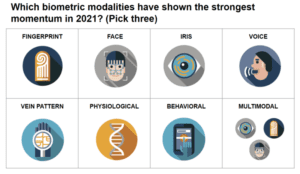FaceTec has filed a patent infringement lawsuit against iProov, another tech firm focused on selfie-based biometric identity verification.
FaceTec’s allegations stem from the way the company says that iProov used its Spoof Bounty Program. First launched in 2019, FaceTec’s Spoof Bounty Program now offers payouts totaling up to $100,000 for successful presentation attacks – or ‘spoofing’ attacks – against its facial recognition system, a program aimed at helping FaceTec to fine-tune its technology while offering a high level of transparency about its effectiveness.
According to a statement from FaceTec, iProov essentially copied aspects of FaceTec’s technology, learned through “exhaustive participation” in the Spoof Bounty Program, into its own portfolio. Such actions are in violation of the program’s Terms & Conditions.
Speculating as to the motivation behind the infringement, FaceTec CEO Kevin Alan Tussy referenced a YouTube video by Russian hacker White Ushanka, demonstrating a deepfake-based spoof of iProov technology.
FaceTec has demanded that iProov cease and desist its use of FaceTec’s intellectual property, and FaceTec has therefore made the decision to sue iProov for “patent infringement, breach of contract, and intentional interference with contractual relations.”
Both companies are major names in the burgeoning remote identity verification market, with a recent market analysis from Goode Intelligence having named them as leaders in the space. iProov announced last month that its revenues had tripled between 2020 and 2021, after FaceTec announced in the summer that its own revenues were up 293 percent year-over-year.
Commenting on the lawsuit, FaceTec’s Chief Legal Officer, Terry Coffing, indicated that the lawsuit is not only a matter of ensuring fair competition in the market, but also a strategic indication of FaceTec’s unwillingness to tolerate patent infringement.
“I believe this lawsuit will not only result in multiple large damage awards against iProov, but also serve as a warning to others who are considering stealing FaceTec’s technology or infringing on FaceTec’s patents,” he said.
—
January 5, 2022 – by Doug OGorden








Follow Us